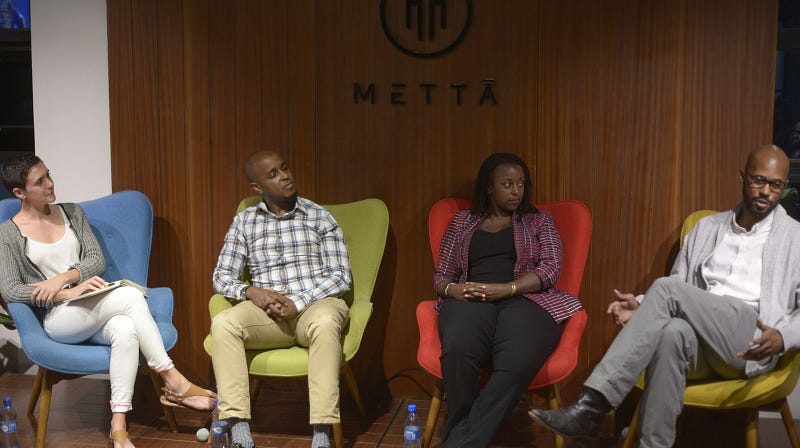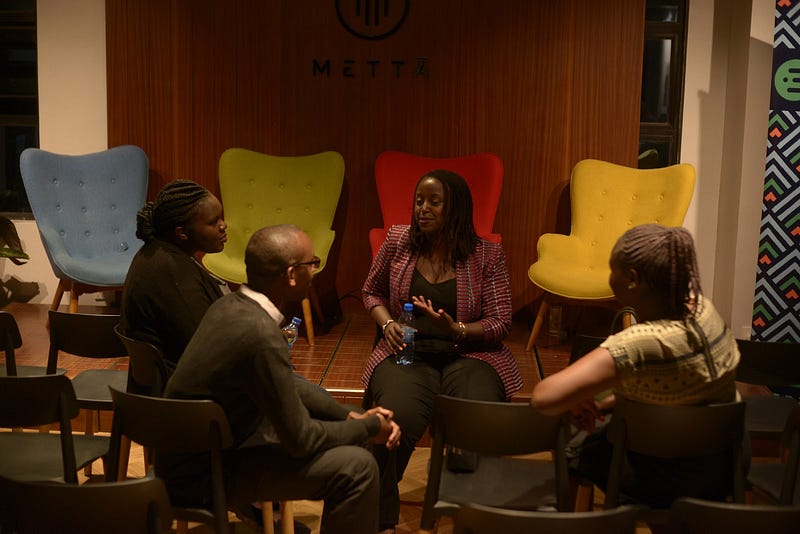Are career paths ladders or lattices? When we think about promotions and progression in our careers, we often expect this to come in terms of vertical moves. However, before turning down an opportunity for moving laterally (meaning a move within your own company or to a new organization with similar pay and responsibility level) what do you need to consider?
We hosted Sales, Marketing and Advertising professionals for a networking event in Nairobi. We had several leaders in these fields –Christopher Madison, CEO at Dentsu Aegis, Elizabeth Karani, Country Manager at Beauty Click and Charles Kariuki, Global Sales Manager at Ecozoom — shared some insights on how moving laterally across positions could eventually lead to one climbing up the ladder.

They emphasised the need to consider what you stand to gain by making this horizontal move. Here are a few of their main tips:
Forget titles!
Chris reiterated that it is far more important to focus on who you will become rather than what your title will be. Will you get an opportunity to expand your skills? e.g. as a communicator, advertiser, analyst or recruiter?
Charles also brought up the compensation aspect . We sometimes focus on the fact that moving laterally will give us a similar level of earnings that we overlook other complimentary benefits. This might be in the form of more flexible hours; less travel required a more inspiring leadership team or a different team culture.

What do you stand to learn?
According to Elizabeth, a horizontal move presents an opportunity to learn new skills. Stay curious and know what you like and want. Make your experiences count and be intentional about what you want to accomplish.
Learning new skills will help you stay fresh and current and helps you remain competitive. A lateral move will also give you the opportunity to understand a different facet of the organization and give you more visibility with new team members and managers. This could eventually lead to a promotion when opportunities arise.
Have an end goal in mind
Charles stressed the importance of having the end-result in mind while being flexible in your methods. “What counts is you’re making yourself better where you are,” he said. Seek out ways in which you will increase your achievements by broadening your knowledge base and trying out new things.
One practical way of doing this is educating yourself on where you need to be at the next level, in terms of skill and experience. Chris suggested that you can do this by looking at job descriptions of the positions you want. Compare with where you are at the moment and start filling in the gaps in skills that you may not currently possess.
“Linkedin is a great tool to learn about these gaps,” Elizabeth suggested.

“Keeping your financial and life goals in mind, helps you to start making better decisions on where you should be and how fast you want to get there,” said Chris. “You can then do the math and push yourself harder,” he added.
In conclusion, having your goals in mind, looking beyond the titles and the salary aspect of shifting positions will often make the path towards making that final decision a bit clearer.
Next steps:
Before making the move, ask yourself these questions to decide on your next course of action:
- What are my career goals?
- What are my personal and financial goals?
- What do I stand to learn in this new position?
- Besides a higher salary, what other benefits am I looking for?
- Does this move offer the possibility of a vertical progression?
Have you made a lateral move that has propelled your career upwards? We’d love to hear from you, do let us know in the comment section what you learnt and how the experience shaped your career.
Are you interested in receiving more career resources straight to your inbox? Subscribe here!
Looking for new opportunities? take a look at our current openings with our partner organizations:









































